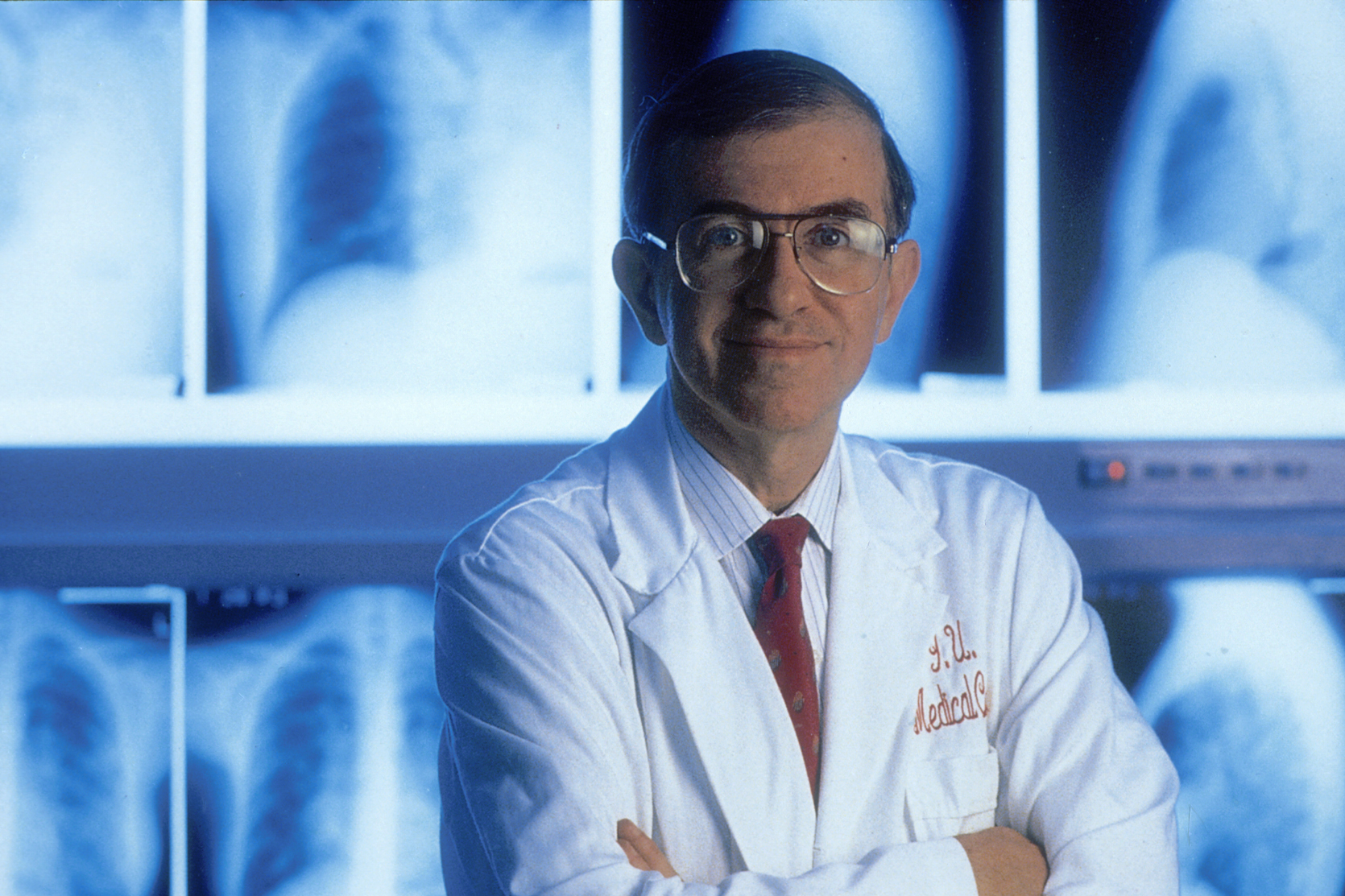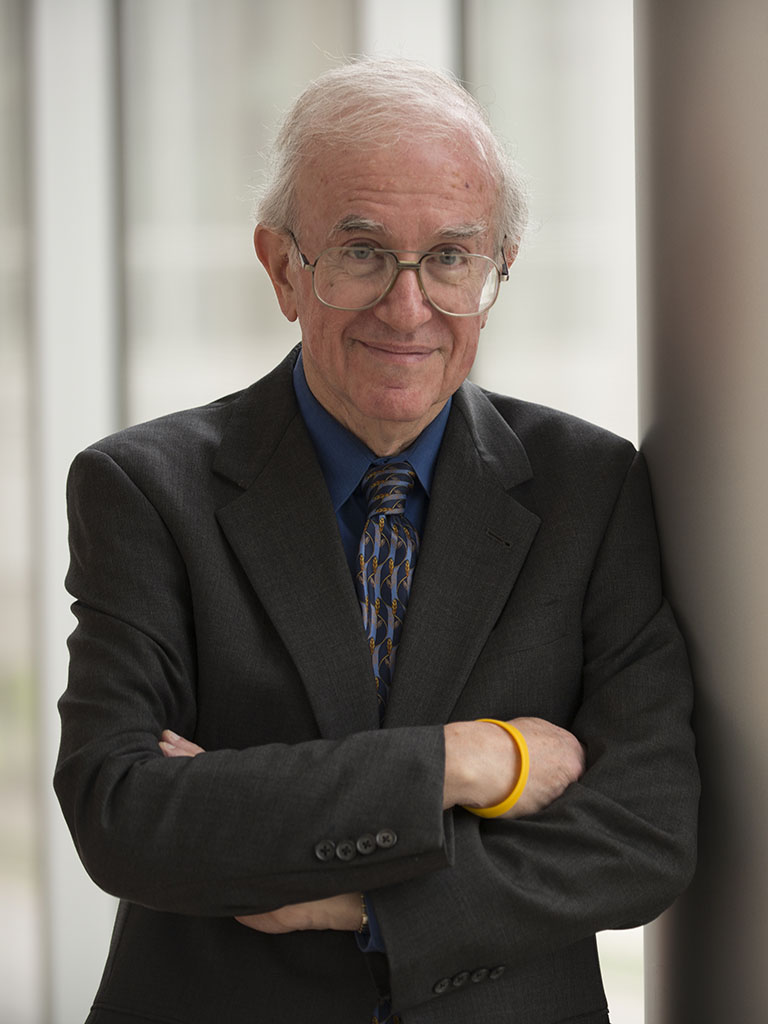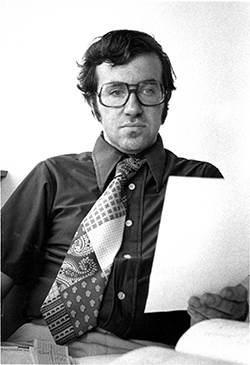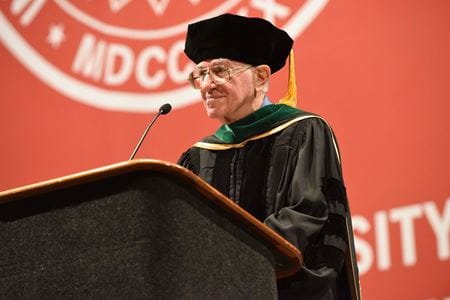International acclaim
Einhorn’s incredible discovery – which remains the only cure discovered for metastasis of a solid tumor – earned him international recognition and ensured his meteoric rise in the world of oncology.
A 1965 graduate of Indiana University, Einhorn attended medical school at the University of Iowa and completed fellowship training in oncology at MD Anderson Hospital in Houston and IU School of Medicine.

Einhorn was the first medical oncologist at Indiana University when he joined the faculty of the School of Medicine in 1973. The following year, he developed a cure for testicular cancer and has since focused his career on alleviating the side effects of treatment for survivors.
He assumed the title of Distinguished Professor at IU in 1987, the highest rank bestowed upon Indiana University faculty. He gained further recognition when he successfully treated famed professional cyclist Lance Armstrong, who was diagnosed with advanced testicular cancer in 1996. He is now the Livestrong Foundation Professor of Oncology at IU School of Medicine, an endowed position supported by Armstrong’s charitable foundation.
Einhorn has followed his groundbreaking research with continued innovations, heading up the country's preeminent germ-cell tumor treatment program. He has also assembled a multidisciplinary team of researchers to explore the ways in which platinum-based drugs might help treat lung cancer, the leading cause of cancer death in men and women.
Lung Cancer Research UpdatesTestis Cancer Research Updates
 Lawrence H. Einhorn, MD, is a legend in the field of medical oncology and is widely considered to be a guiding light to an entire generation of cancer researchers as well as a hero to legions of grateful patients.
Lawrence H. Einhorn, MD, is a legend in the field of medical oncology and is widely considered to be a guiding light to an entire generation of cancer researchers as well as a hero to legions of grateful patients.

 His unprecedented discovery of the curative power of adding the experimental platinum-based drug Cisplatin to two other chemotherapy drugs turned the research world upside down and forever altered the patient experience. After phase II of clinical trials, Dr. Einhorn’s regimen became the standard therapy.
His unprecedented discovery of the curative power of adding the experimental platinum-based drug Cisplatin to two other chemotherapy drugs turned the research world upside down and forever altered the patient experience. After phase II of clinical trials, Dr. Einhorn’s regimen became the standard therapy.



